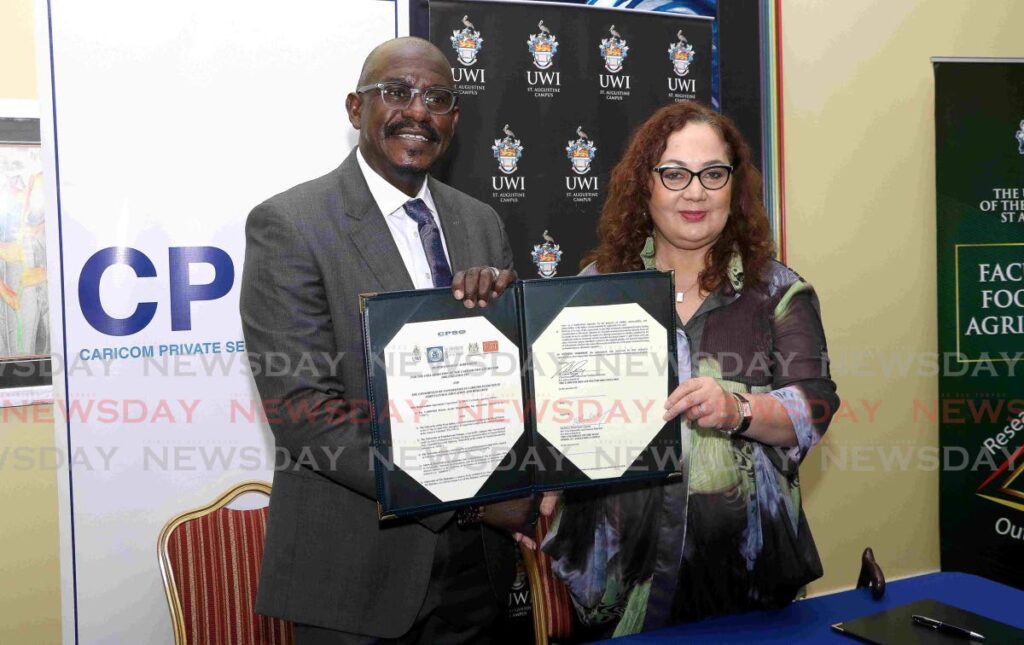UWI, Caricom form consortium to tackle food import bill

CARICOM and the University of the West Indies (UWI) have signed a memorandum of understanding (MoU) to establish a consortium of key educational institutions involved in agricultural research.
In 2022, the Prime Minister called on UWI to champion the region’s US$5 billion food import bill by 25 per cent by the end of 2025.
Answering the call, UWI's faculty of food and agriculture united regional agricultural universities to create the Consortium of Universities in Caricom Involved in Agricultural Education and Research (CUCAER).
CUCAER comprises UWI, the University of TT (UTT), Anton de Kom University of Suriname, the University of Guyana, and the University of the Bahamas.
Dean of the faculty of food and agriculture Prof Mark Wuddivira in his address said, “Through CUCAER, we aim to harness the collective strength of our institutions to identify key research objectives, consolidate resources, and facilitate human capital development.”
CUCAER, in collaboration with stakeholders across government, academia, industry, and civil society, aims to drive sustainable agri-food system development in line with national and regional priorities.
Wuddivira said, “We are committed to fostering collaboration, innovation, and excellence in agricultural education and research, each contributing unique expertise and resources to address our region's complex challenges.”
He also highlighted the negative economic effects of the Caribbean’s reliance on imported food.
"The enormity of our food-import bill poses a significant threat to our economic stability. It is imperative that we take decisive action to reduce our dependence on external food sources and cultivate our agricultural potential."
Wuddivira said the economic strain imposed by the region's food-import bill required immediate action.
“We cannot afford to continue haemorrhaging billions of dollars on imports when we possess the capacity to develop sustainable agricultural practices."
CEO and technical director of the Caricom Private Sector Organisation Dr Patrick Antoine said the importance of public-private partnerships was crucial in achieving such objectives.
"Collaboration between academia, government, and the private sector is indispensable in driving sustainable agricultural development in the Caribbean."
He said if a food item could be sourced from outside the region, it could be grown in the Caribbean.
Senior lecturer Dr Ronald Roopnarine said a collaborative approach was necessary.
"Individually, our resources are limited. Together, they are strong. The consortium aims to overcome resource limitations on our islands by leveraging our collective strengths to achieve common goals."

Comments
"UWI, Caricom form consortium to tackle food import bill"